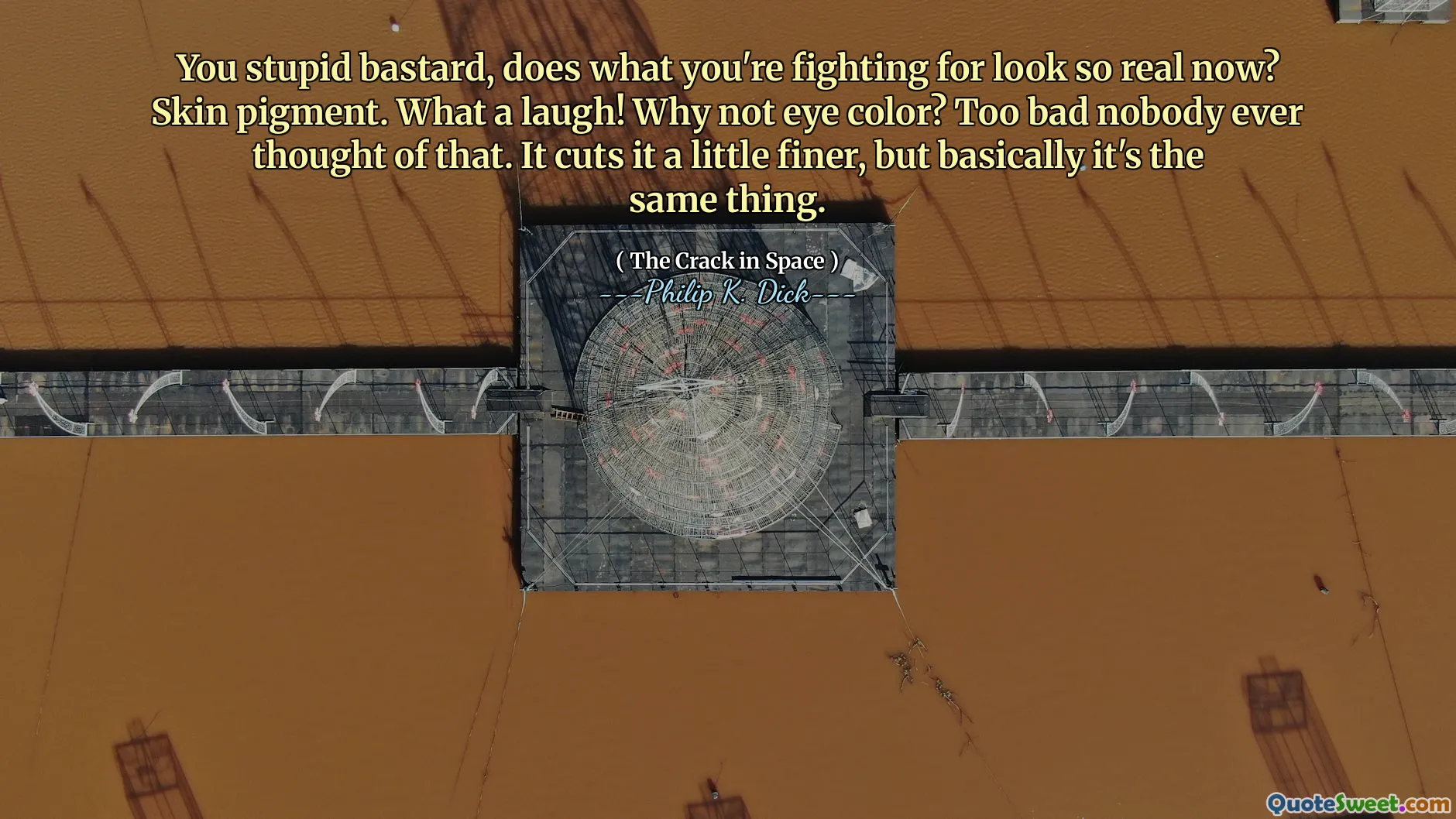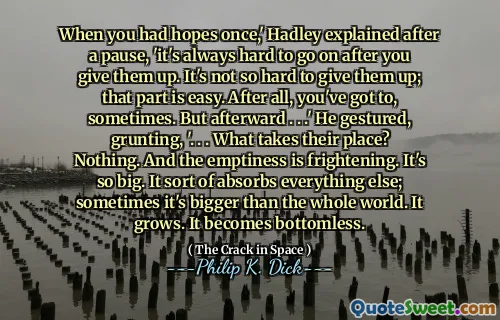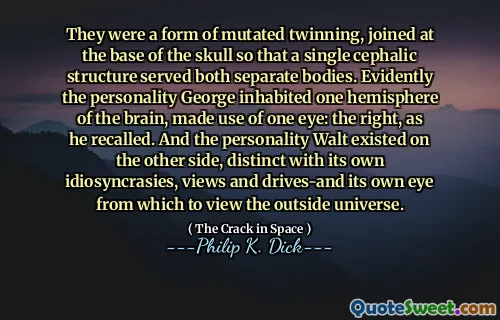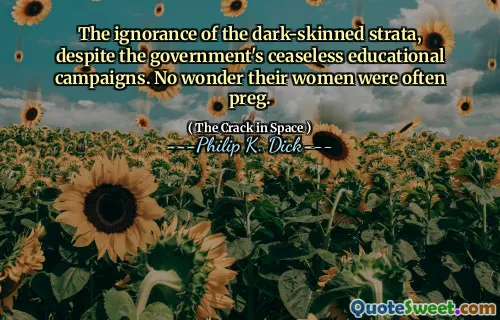
You stupid bastard, does what you're fighting for look so real now? Skin pigment. What a laugh! Why not eye color? Too bad nobody ever thought of that. It cuts it a little finer, but basically it's the same thing.
In Philip K. Dick's "The Crack in Space," the absurdity of racial discrimination is highlighted through a powerful conversation. The narrator reflects on the superficial nature of choosing skin color as a basis for conflict and identity. It suggests that focusing on such trivial differences, rather than recognizing shared humanity, is ultimately pointless. Dick critiques societal values by mocking the arbitrary distinctions we make. He proposes that if we were to evaluate differences more minutely, like eye color, it shows how ridiculous not only racism but all forms of prejudice can be. This challenges readers to reconsider the foundations of their beliefs and the reasons behind divisions among people.
In Philip K. Dick's "The Crack in Space," the absurdity of racial discrimination is highlighted through a powerful conversation. The narrator reflects on the superficial nature of choosing skin color as a basis for conflict and identity. It suggests that focusing on such trivial differences, rather than recognizing shared humanity, is ultimately pointless.
Dick critiques societal values by mocking the arbitrary distinctions we make. He proposes that if we were to evaluate differences more minutely, like eye color, it shows how ridiculous not only racism but all forms of prejudice can be. This challenges readers to reconsider the foundations of their beliefs and the reasons behind divisions among people.









